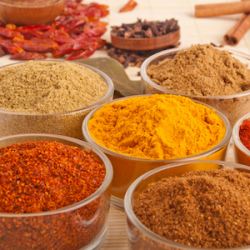Remember the hullabaloo over the Flint water crisis?
Without a doubt, there was very good reason to be concerned. Lead is one of the few chemicals that really is scary in relatively small amounts. Lead contamination, when it occurs, is a problem that needs to be quickly resolved.
Thankfully, the average blood lead levels (BLLs) of children in Flint increased by just a tiny amount -- so tiny, in fact, that the water crisis represented just a tiny blip on an overall downward trend in average BLL.
That good news didn't stop the media from fanning the flames of panic and scaremongering. In July 2018, CNN's Christiane Amanpour flat-out lied about the situation in Flint, falsely stating that children "now live with the irreversible effects" of lead poisoning, and featuring a guest who claimed it was the "most important... public health disaster of this young century."
Given how concerned the media is about lead, surely they will be interested in the CDC's latest report showing dangerously high lead levels in children who live in households that contain spices, herbal remedies, and ceremonial powders -- in other words, the sort of things we associate with alternative medicine and other "natural" or "traditional" practices.
Lead Poisoning: Another Reason to Avoid Alternative Medicine
In North Carolina, blood lead levels (BLLs) in children are decreasing, but one county saw a curious uptick in the number of children who had elevated BLLs (defined as ≥5 μg/dL). An investigation revealed that spices, herbal remedies, and ceremonial powders may be partially to blame.
The CDC report focused on 61 children (from 59 residences) with elevated BLLs from 2011 to 2018. (The average was 17 μg/dL, more than three times the CDC threshold.) Investigators went to the homes to determine possible causes -- from paint to cookware -- and the factors that played an outsized role were the aforementioned substances. Both nonedible (e.g., kumkum, sindoor, and surma) and edible (e.g., saffron and turmeric) items had high lead levels.
In support of this hypothesis is the fact that many of the children with elevated BLLs were of Asian descent (specifically, Indian, Pakistani, and Afghan descent), cultures that commonly use spices, herbal remedies, and ceremonial powders.
The FDA does not conduct much regulatory oversight for these kinds of products. Given this CDC report, and the widespread use of these substances (especially in our immigrant communities), the FDA should reconsider.
Source: Angelon-Gaetz KA, Klaus C, Chaudhry EA, Bean DK. "Lead in Spices, Herbal Remedies, and Ceremonial Powders Sampled from Home Investigations for Children with Elevated Blood Lead Levels — North Carolina, 2011–2018." MMWR 67 (46):1290-1294. Published: 21-Nov-2018. DOI: 10.15585/mmwr.mm6746a2.

